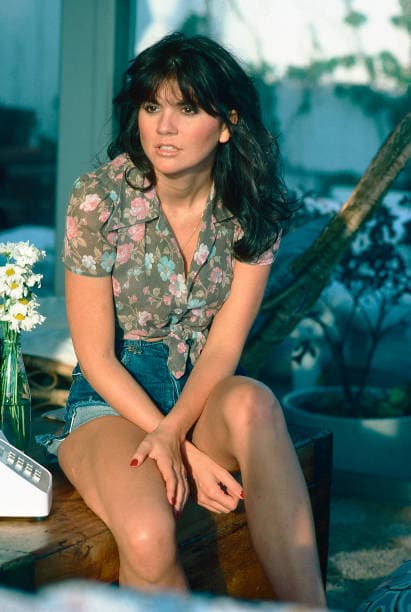
A weary soul’s quiet confession, carried from a barroom jukebox into the realm of timeless longing.
In 1975, Linda Ronstadt included “Hey Mister, That’s Me Up on the Jukebox” on her platinum-selling album Prisoner in Disguise, a record that continued her remarkable ascent through the decade and further solidified her status as one of America’s most versatile vocal interpreters. Originally written and recorded by James Taylor on his 1971 release Mud Slide Slim and the Blue Horizon, the song never chased the high reaches of the charts in either incarnation. Yet it endured—not as a commercial milestone, but as a piece of emotional architecture, a quietly devastating portrait of the solitary heart. Ronstadt’s interpretation, nestled among the album’s careful blend of country-rock tones and confessional balladry, would help carry the song to a broader audience, revealing its fragile core with her unmistakable voice.
“Hey Mister, That’s Me Up on the Jukebox” belongs to that rare lineage of songs written in the language of loneliness without tipping into melodrama. Under Taylor’s pen, it was an examination of self-exposure—of what it means to hear one’s own wounds echoed back through a machine designed for strangers. In Ronstadt’s hands, the narrative becomes not only autobiographical but universal: the song transforms into the quiet murmur of anyone who has ever looked around a dim room and felt the strange, aching recognition of being simultaneously visible and unseen.
The composition itself is deceptively simple, structured around gentle chord changes that move like footsteps across a wooden floor. Its storytelling hinges on a revelation: the singer hears their own life distilled into a tune—one that now plays publicly for others to consume with casual ease. Ronstadt approaches this revelation not with theatrical sorrow, but with a tone that suggests a deeper, more durable ache. Her performance resists the urge to interpret too much; instead, she opens the emotional space for the listener to inhabit the song’s interior landscape. That restraint is what gives her version such enduring gravity.
Lyrically, the song’s brilliance lies in its ability to hold self-reflection and self-exposure in the same breath. It blurs the line between performer and observer. When Ronstadt sings, the jukebox becomes a mirror: a glowing cabinet of memory, regret, and reluctant acceptance. The barroom setting—so familiar, so ordinary—serves as the perfect stage for a confession disguised as small talk. There is no grand revelation, no sudden transformation. Only recognition:
In Ronstadt’s catalog, the track stands as a testament to her extraordinary instinct for emotional truth. Her voice does not simply reinterpret Taylor’s composition—it reveals its hidden chambers, its flickering laments, its quiet plea for understanding. It is the sound of a soul illuminated not by spotlight, but by the soft glow of a jukebox spinning one more lonely song.